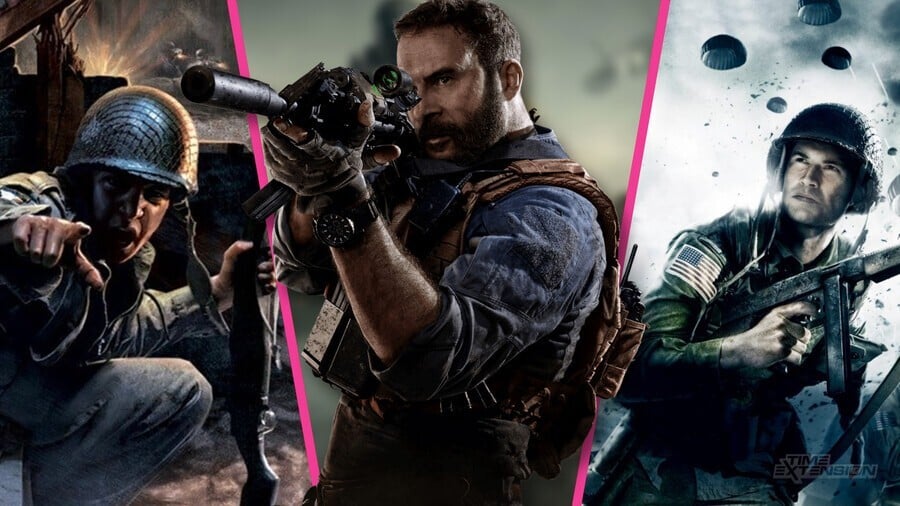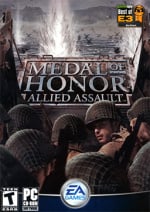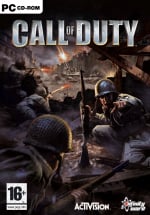
Activision's Call of Duty series is a commercial monster. Since its inception twenty years ago (it launched on October 29th, 2003), it has sold more than 425 million copies worldwide and is comfortably the best-selling FPS franchise of all time. Its astonishing and prolonged sales success over the past decade or so has established Activision as one of the leading forces in the games industry, and, despite the passage of time, it shows little sign of losing its grip on the consciousness of millions of players all over the globe.
This cash cow has a direct relationship with a series that, at one point, was its closest rival: Medal of Honor. That series began life in 1999 when director Steven Spielberg became infatuated with the idea of creating a 'historical' shooter in the wake of his success with the movie Saving Private Ryan. The resultant PlayStation titles Medal Of Honor and Medal of Honor: Underground were unique in that they attempted to frame the action in as sensitive a way as possible, highlighting the human struggles that were at the core of one of the planet's most significant conflicts.
DreamWorks Interactive, the video game arm of the movie production company co-founded by Spielberg, handled development on the two PlayStation entries, but it would be 2002's Medal of Honor: Allied Assault that really propelled the series into the big-time. For this outing, publisher and IP holder Electronic Arts – which purchased DreamWorks Interactive in 2000 – enlisted the talents of 2015, Inc., a relatively small 22-person operation based in Tulsa, Oklahoma.
Founded by Tom Kudirka in 1997, 2015, Inc. was very much a rookie outfit, with its only notable project at this point being an expansion pack for Ritual Entertainment's 1998 FPS SiN. The studio was recommended to Spielberg after he approached id Software but was told that the Doom and Quake creator was unable to take any more work.
Although Kudirka aggressively expanded 2015 Inc. in order to properly tackle the project, staff who were there at the time have since noted that it was a "chaotic" place to work. "I was the first employee at 2015," Allied Assault’s level designer and writer Zied Rieke told MCV back in 2013. "It was my very first job in the games industry. Allied Assault was a difficult project. It was a bit chaotic. There wasn’t a lot of strong leadership on the team. The designers weren’t working together super well; they were each making their own stuff. But we pulled Allied Assault out of our asses – it was the last six months when that game really came together."
Medal of Honor: Allied Assault sold a million units in its first ten months on sale, which was a tremendous success for a non-console title. It's little wonder, then, that several members of Kudirka's small team began to feel like they might be better off elsewhere, as Rieke recalls. "We realised, ‘Wait a minute, if we can do that in six months, what could we do with a full development cycle having learnt those lessons?’”
One famous narrative states that 2015 Inc. employees Vincent Zampella and Jason West looked to leverage the commercial success of Medal of Honor: Allied Assault by looking for a way to break out of the studio and form their own company.
In 2013, Vanity Fair's Max Chafkin reported that:
The success of Allied Assault was less a coup for 2015 than it was for Zampella, who, according to a lawsuit filed against him by 2015’s Kudirka and two other former 2015 executives, immediately began plotting a way to strike out on his own. The lawsuit... claims that Zampella began negotiating with EA through an intermediary and organized secret weekly meetings at a local Tex-Mex joint, during which he conceived a plan to leave 2015 and start a competing studio, known as Infinity Ward. Salaries and job titles were planned, the renting of office space was discussed, and a time line was drawn up.
Zampella and West say there was no conspiracy, but no one disputes what happened next. In the days before Allied Assault’s release, Kudirka’s team rose up against him. Each day, Kudirka would come to the office and find a handful of resignation letters slipped under his door. By the end of January, 20 of Kudirka’s 27 developers had turned in letters.
"I was a tough boss," Kudirka told Vanity Fair. "But those guys screwed me over pretty good."
In the end, Infinity Ward wouldn't team up with EA, but would instead join forces with Activision, led by Bobby Kotick. "Activision offered to deposit money in the account within hours and fund a project for over a year, with one stipulation: The right to purchase the company for around $3m, and we had to sign that day," artist Justin Thomas told MCV in 2013. "Let’s just say they got a very good return on investment."
2003's Call of Duty was the first fruit of this new union and would go toe-to-toe with EA Los Angeles' Medal of Honor: Rising Sun. Internally, it was even referred to as 'MOH Killer' before being given its final title. Almost from the outset, Call of Duty would outperform its rival commercially and critically (its debut had sold 4.5 million copies worldwide by 2013, while its 2004 sequel would improve on that, with 6 million units sold by the same year). Such was the positive momentum of the franchise Activision decided to involve a second studio (Treyarch, which it had acquired in 2001) in order to maintain a regular release schedule.
Zampella and West spearheaded 2007's Call of Duty: Modern Warfare, which shifted the action from World War II to the modern era, massively expanding the commercial appeal of the series and propelling it to even greater heights. It would go on to sell around 16 million copies. Meanwhile, after several sub-par releases, Medal of Honor continued to fall by the wayside. 2010's reboot (simply titled Medal Of Honor) was seen as the franchise's attempt to match Call of Duty's ambitions and managed to sell a respectable five million copies. However, 2012's Medal of Honor: Warfighter was released to a mixed reception and only sold three million. This would convince EA to mothball the franchise and instead position DICE's Battlefield as its key military shooter series moving forward. As of 2016, the Medal of Honor series sold over 39 million units – less than a tenth of Call of Duty's total.
As for Vincent Zampella and Jason West, their connection with Call of Duty was not to last. Despite creating the series and earning millions upon millions of dollars for Activision, the pair found themselves ejected from the company following a legal tussle which generated headlines outside of the video game industry, thanks to the eye-watering amount of money involved.
2009's Call of Duty: Modern Warfare 2 sold five million copies in 24 hours and grossed $310 million in the same timeframe; it would pass $1 billion in gross sales just a few months later – but it would be Zampella and West's final contribution to the series. In March 2010, they were forcibly removed from Infinity Ward following an alleged campaign by Kotick to find a pretext for firing the duo. According to Vanity Fair, this became known within Activision’s top ranks as "Project Icebreaker" and was partly overseen by a former I.T. director, Thomas Fenady, who, in a deposition, "claimed he was ordered by Activision’s former chief legal officer, George Rose, to 'dig up dirt on Jason and Vince.'"
Vanity Fair also reported that:
West and Zampella say they were summoned to Activision’s headquarters in Santa Monica, California, where they were escorted, separately, by a detail of thick-necked security guards wearing communications earpieces into a conference room, where they were met by a lawyer and Activision’s head of human resources. According to West and Zampella, they were told they could not return to their offices, could not talk to their former colleagues, and—oh yes—would not be receiving the $36 million in bonuses and royalties they’d been expecting.
West and Zampella would Activision to court for wrongful termination, and around the same time, they established Respawn Entertainment with the assistance of EA. It was instituted by Activision that, just as they had done when they were at 2015 Inc., the pair had been planning to break away from Infinity Ward all along. Activision's countersuit in 2010 claimed that West and Zampella were "small-minded executives" motivated by "envy and personal greed".
Despite this, Activision reached a settlement with EA over the "poaching" of West and Zampella; the company also offered the pair a settlement package just days before the trial was due to go to court. While the figure remains unknown, it is believed to be in the tens of millions of dollars. West and Zampella accepted the offer, ending one of the more unpleasant legal episodes in gaming history.
It would also rupture the successful partnership between the two men; after Titanfall was released, West left Respawn. "It does sort of sour you on the industry," he told Vanity Fair. "It’s tough. If we can’t get treated well, what possible chance does a newcomer have? How do they prevent themselves from being strong-armed by the guys with the money? I wish I had the answer to that question, but I don’t."
Amazingly, Zampella and Respawn would come full circle in 2020 via the EA-published Medal of Honor: Above and Beyond for VR headsets – the first game in the franchise for almost a decade. While Zampella himself didn't work directly on the game, the core team included many of the same people who had worked on Allied Assault in 2000, led by Peter Hirschmann.
While it's a neat twist to see Zampella's name linked with the series once more, Call of Duty is arguably the brand with which gamers will associate his name.







